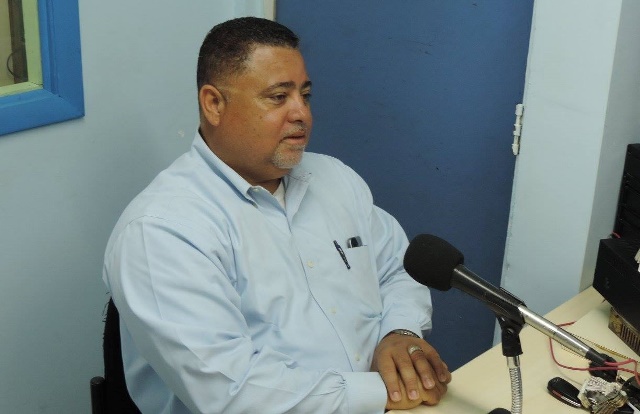PHILIPSBURG, Sint Maarten — Former Member of Parliament Frans Richardson on Wednesday said he is disappointed in the justice system and outraged at the misleading statements and devious tactics that are used to convict persons in a court of law and in the court of public opinion.
Richardson, who was sentenced in the Court of First Instance on Tuesday to twelve months and payment of criminal proceeds, said the verdict did not come as a complete surprise considering the same judge who convicted him in the Emerald case, presided over this “Aquamarine II” case. “His mind was colored so having a different view of me was slim to none,” Richardson said, adding that this doesn’t make the verdict any less disappointing.
The outrage he feels comes from the fact that his attorney did not have the opportunity to cross-examine the other suspects in the case as part of his defense. These persons, it was explained, are still suspects in the bigger “Aquamarine I” case. As such they have invoked their right to remain silent until that case is tried.
“So that connected case has not been called as yet but a sentence has been passed against me before my defense has gotten the opportunity to question these suspects. The way the justice system is used in this country by the prosecutors is unfair and abusive. How can this be called a fair trial when key witnesses are not questioned by my defense because they are being reserved for another case? Richardson asked.
He explained that the prosecutor keeps on saying that the investigation into “Aquamarine I” is ongoing, effectively blocking his attorney from those suspects. “It would not surprise me one bit if suddenly the prosecution decides to drop the case against the others because it is clear that this was all about targeting me,” Richardson said.
“Because how is it possible that the case they called “bigger” “Aquamarine I”, is not called as yet because information out of that case most probably would have been beneficial to my person. If the cases were not connected, then how is it these suspects can use their right to remain silent and be blocked from being questioned in my case? This is a tactic used by the prosecution to keep them from being cross-examined and then like magic, their case will be dropped,” Richardson said.
Even more perplexing to Richardson is the judge’s interpretation of how Parliamentary Committees work and how words can mislead and convict people in the media. To that end, he pointed to the prosecutor’s accusation that as a member of Parliament’s Committee for Tourism & Economic Affairs, he used his so-called influence in regards to the BTP building.
He pointed to a paragraph in The Daily Herald which quoted the judge as saying: “As an MP and member of the parliamentary committee for TEATT, Richardson was also a supervisor of BTP. He supervised the contracts closed by BTP with third parties, including ACTIS, and the financial consequences thereof, the court stated.”
“This is a grossly misleading statement and one of the reasons we pleaded for them to investigate how it actually works. Anyone reading that would conclude that as a member of the committee, I sat there and personally supervised BTP and approved contracts. So they are saying that because I am an MP and part of a Committee, that means I am responsible for the Minister in charge of that portfolio and by extension any decision that Minister makes with regards to that portfolio. In addition to it being nonsense, Parliamentary Committees do not work this way. So one of the issues they used to convict me is based on their incorrect understanding of how Parliament committees work and the power that MP’s have,” he said.
Richardson added that there are many other aspects of his case that was twisted against him but stressed that he and his legal team will continue to fight in the appeal process and by then, hopefully, the “Aquamarine I” case would have been tried and his defense would have gotten the opportunity to question persons involved which will finally shed light on the case in his benefit.




























